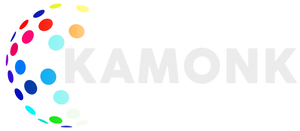IoT Solutions Used in The Healthcare Industry
Today, innovative healthcare solutions are being widely implemented in medical organizations, enabling healthcare providers to reduce costs, improve patient care, and optimize workflows. These solutions promise to transform the industry significantly.
Mobile applications, smart lights, smart switches, biosensors, wearables, home virtual assistants, blockchain-based electronic medical record systems, predictive analytics, and web-based health portals represent a truly new stage in the healthcare landscape.
1. Sensors and smart devices
Sensor technologies such as wearable sensors and devices provide many benefits for health management. Accurate reading and interpretation of indicators with the possibility of connecting sensors to mobile devices allows medical centers to replace heavy medical equipment with smaller devices.
Smart devices such as smart inhalers for the treatment of bronchial asthma, injection pens for the treatment of diabetes mellitus, smart pills and smart blister packs are currently being widely developed and marketed.
These intelligent technology solutions facilitate diagnosis, improve treatment and improve customer service, representing a significant step towards improving the treatment of diseases. For example, smart inhalers have already become the new standard of care for patients with bronchial asthma.
There are many other great applications of smart devices in healthcare, such as real-time health systems (RTHS), device monitoring systems, and connected health systems.
2. Biosensors
Biosensors are currently one of the most important elements of the digital transformation of healthcare. You can find various biosensors that transmit medical information over a wireless network to mobile and web applications.
Thanks to them, healthcare providers gain the ability to manage patient treatment and monitor health outside the hospital walls. Biosensors can also help users in their daily lives by collecting data on all their physical activities, sleep and general health.
For example, biosensors can allow users to measure glucose levels, arterial pressure, heart rate, oxygen levels, pulse, blood alcohol levels and alert users (and doctors) if any health issues/problems are detected.
Some of these devices record indicators with high sensitivity and specificity, making them very useful for health management, especially for treating elderly patients with several chronic diseases at once.
The ability of biosensors to monitor the patient's health data in real-time and provide doctors with all the collected information is important, thereby preventing disease complications and improving treatment.
Since the data is read directly from the patient and is constantly updated, the collected indicators are of higher quality than those given by patients during their visits to the doctor and can provide specialists with a real picture of the clinical course in each specific case.
3. Patient Health Portals
Patient health portals have now become an essential part of healthcare organizations. They help provide better customer service and optimize operations such as claim processing and appointment scheduling, making life easier for both doctors and patients.
For example, imagine a health portal that allows patients to consult online with doctors and specialists, check test and lab results, easily make payments, communicate with other patients, find healthy food tips and recipes, and schedule appointments.
4. Application of machine learning
As in many other industries, machine learning has great benefits for the healthcare industry. Machine learning applications can help medical organizations improve customer service, extract value from large amounts of data, efficiently analyze medical records, and improve patient care.
In terms of practical applications, healthcare and pharmaceutical companies use analytics in research and development, especially to streamline clinical trials and decision-making processes. When doctors and other specialists make decisions, the process sometimes seems a bit muddled or limited by an inability to process a lot of information quickly.
There is also often a high probability of human error. Intelligent data analytics can change this by bringing in more data points from new sources, removing information asymmetries and adding automated algorithms to make data processing as efficient as possible.
As data sources become more diverse, so do new ways of collecting and analyzing them, helping specialists make successful decisions faster.
Although the healthcare industry still lags behind in integrating machine learning solutions, ML offers huge opportunities to innovate clinical care and deliver a personalized customer experience.
5. Blockchain-based initiatives
In addition to banking and finance, blockchain technology can be used successfully in many other industries. Although the technology is the same, it has different applications and healthcare providers can also benefit greatly from its use.
Secure data storage, protected transactions, secure data exchange between healthcare organizations, immutable data record and transparent data flow are all benefits of blockchain integration.
Today, blockchain initiatives are widely implemented in the healthcare sector. For example, the Estonian eHealth Foundation and Guardtime partnered to integrate a blockchain-based system to secure millions of medical records.
Another example is the MedRec project, which represents a decentralized editorial system with a high level of security. To enable secure healthcare data storage and communication, the system uses Ethereum smart contracts and provides an immutable healthcare authentication authorization protocol.
Subscribe to our newsletter
Promotions, new products and sales. Directly to your inbox.

